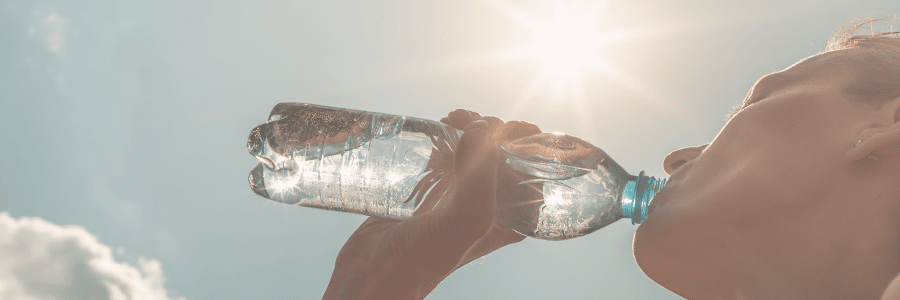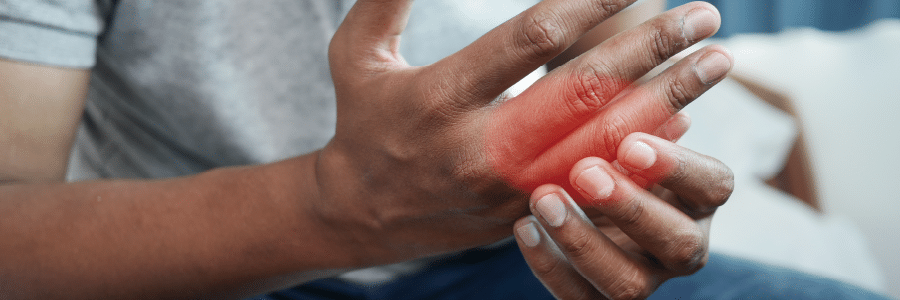Heat Stroke Symptoms & Warning Signs
June 16, 2022
How to Beat the Heat
Just a few months ago, we all looked forward to the summer sun. As 80-degree temperatures give way to 90 and even 100 degrees, it’s time to take steps to protect yourself against extreme heat.
Anytime there’s a period of high heat and humidity with temperatures above 90 degrees for at least two to three days – it’s extreme. In extreme heat, your body struggles to maintain normal temperatures, which can lead to death. In fact, extreme heat is responsible for the highest number of annual deaths among all weather-related hazards, about 1,300.
Older adults, children, and people who are sick or overweight tend to be at greatest risk from the heat.
Look out for warning signs
Heat-related illnesses fall into three categories, each with its own set of symptoms:
- Heat stroke. People suffering from heat stroke will have a body temperature above 103 degrees F. Often, their skin will be red, hot, and dry. Their pulse is rapid. Often, they feel dizzy or confused. In extreme cases, they may lose consciousness. If you suspect you have heat stroke, call 911 and cool down however you can. Do not drink anything.
- Heat cramps. People with heat cramps suffer muscle pains or spasms in the stomach, arms, or legs. If you have signs of heat cramps, go to a cooler location, such as a shopping center or designated cooling center. Sip a sports drink or water.
- Heat exhaustion. The symptoms of heat exhaustion include heavy sweating, paleness, muscle cramps, tiredness, weakness, a fast or weak pulse, dizziness, headaches, fainting, nausea, or vomiting. As with heat cramps, if you have signs of heat exhaustion, go to a cooler location, such as a shopping center or designated cooling center. Sip a sports drink or water.
Stay safe by following 7 simple rules
- Drink plenty of fluids. It’s essential to stay hydrated on hot days. The best fluids to keep you hydrated include water, sports drinks, and other non-caffeinated beverages.
- Stay cool. If you’re outdoors, look for shade. If your home is not air-conditioned, go to a park district recreation center, shopping center, theater, or designated cooling center (for a list of Atlanta cooling centers, click here). If you can, take cool showers or baths to lower your body temperature.
- Dress appropriately. Wear a broad-brimmed hat to protect you from intense sun. It can help to reduce the risk of sunburn and offers some protection from heat-related illnesses. Also, dress for the weather. Wear loose, lightweight, light-colored clothes.
- Use common sense. Avoid using your oven during the hottest days, especially if your home is not air-conditioned. Avoid strenuous activities, if possible. Don’t work outdoors at midday when the temperature is at its peak.
- Be careful with the car. A car’s interior can get oven-hot quickly during the hottest summer days. Never leave people or pets in a car while you run errands – not even for a few minutes.
- Take care of your pets. Like people, pets need cool water during hot summer days. Remember that hot asphalt or concrete can take a toll on their paws.
- Be a good Samaritan. Check on family members, senior citizens, and neighbors to make sure the heat has not gotten to them.
Get the care you need
If you feel symptoms of heat stroke, dial 911 or immediately go to a hospital. Talk to your doctor if you feel the symptoms of heat cramps or heat exhaustion – particularly if they last longer than an hour after you move to a cooler location. If you don’t have a doctor, Grady can help. If you need a primary care physician, give us a call at (404) 616-1000. We’ll arrange an appointment at a Primary Care Center near you. Doctors there can treat most conditions and provide access to Grady’s unparalleled medical specialty expertise.

Advertisement



